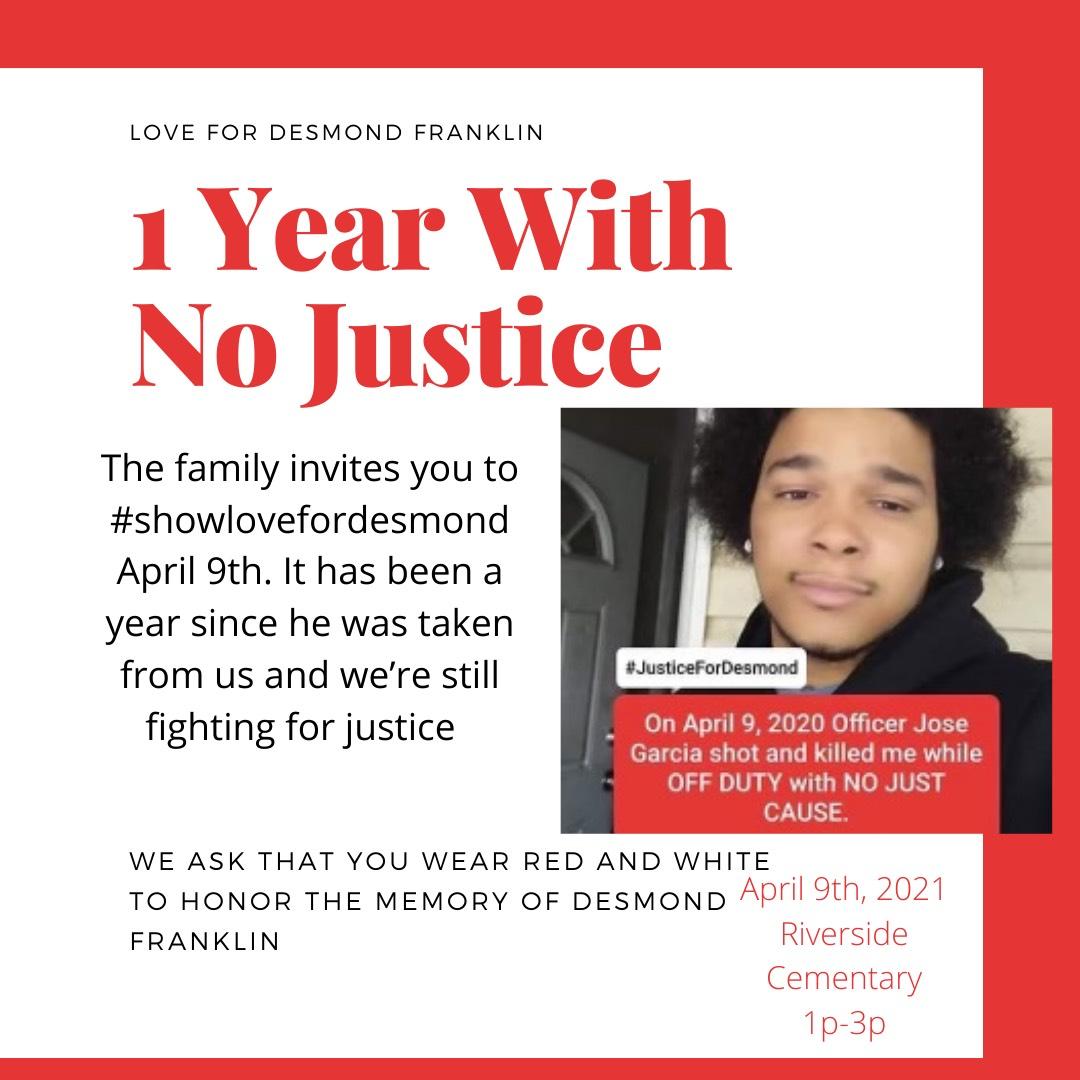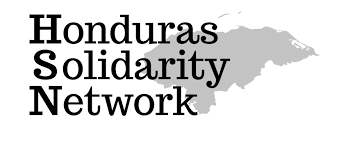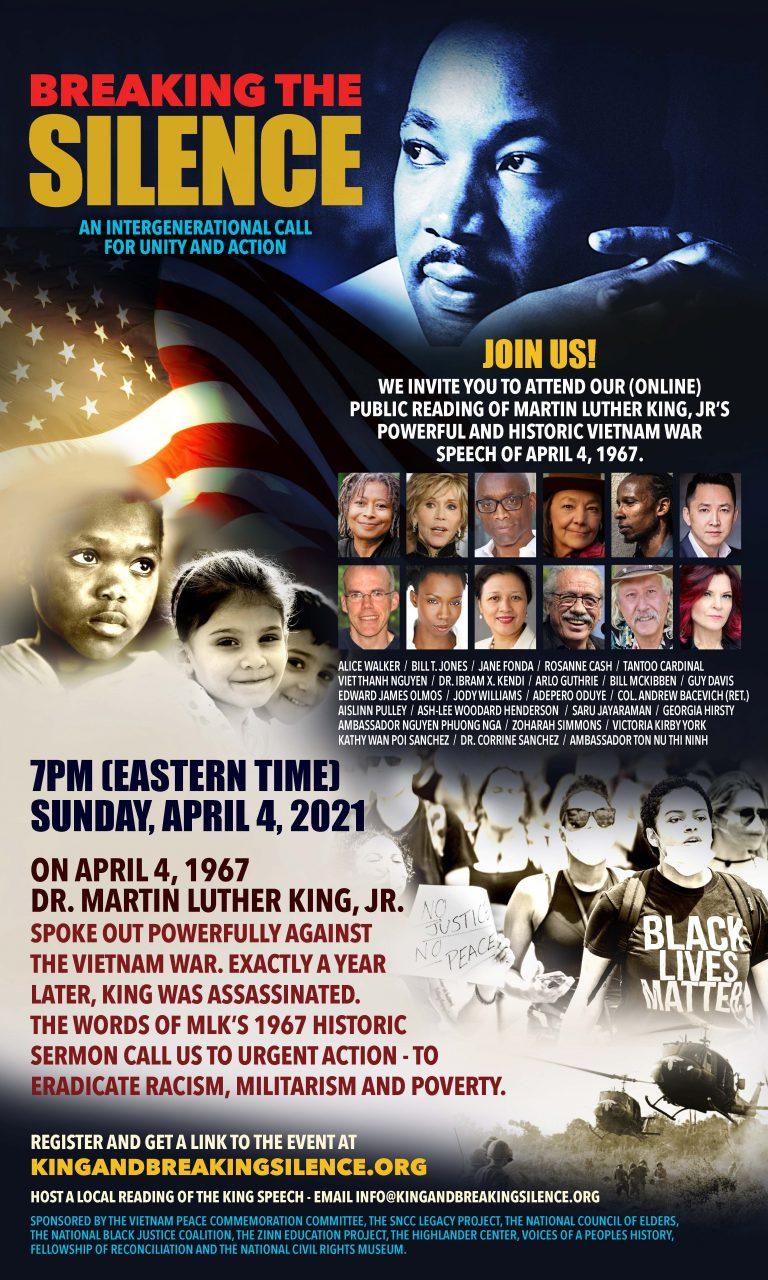- Home
- About Us
- Issues
- Countries
- Rapid Response Network
- Young Adults
- Get Involved
- Calendar
- Donate
- Blog
You are here
Afro-Descendant & Indigenous: News & Updates
Event
April 9, 2021
Desmond Franklin was murdered April 9, 2020, by Cleveland police officer Jose Garcia. This Friday we will celebrate the life of Desmond and stand in solidarity with his family as they unveil a loving banner created to honor the life of Desmond Franklin. Location: Riverside Cemetery, 3607 Pearl Rd, Cleveland, OH 44109
Event
April 7, 2021
Dr. Dana Frank, a history professor at UC Santa Cruz, is an expert on Honduras and Honduras/US relations. She explains the current situation: why people are fleeing, the role of the US in supporting the narco-dictatorship, and legislative proposals pending in the US House and US Senate that would cut support to Honduran police/military, as well as to President Juan Orlando Hernández. She is author of Bananeras: Women Transforming the Banana Unions of Latin America (2005) . She is currently researching the AFL-CIO’s Cold War in Honduras, 1954-1979.
Event
April 5, 2021
We invite you to join us for an intersectional NE Ohio event to commemorate Dr. Martin Luther King’s “Time to Break the Silence” speech of April 4, 1967 at Riverside Church in New York City. This historic speech condemned US militarism, racism and extreme materialism/poverty, and represented a significant expansion of Dr. King’s thinking on the root causes of the challenges facing U.S. society. We will read excerpts from Dr. King’s speech, then discuss the implications for NE Ohio today.
News Article
March 31, 2021
Cleveland Indians fans will not be able to paint their faces in Native American fashion or wear headdresses to games at Progressive Field this season. The Cleveland Indigenous Coalition has released a statement in response: “[We] continue to work closely with the Cleveland Major League Baseball team during this period of transition, and we are encouraged by the team’s cooperation in listening to our recommendations and input. The donning of headdresses and stereotypical Native American-style face paint reflects and reinforces harmful stereotypes, which hurt our community—especially our Native youth. By enforcing the removal of Native American headdresses and Native American-style face paint for the 2021 season, the team is creating a more inclusive experience for all fans.” There is no opening day protest against racist team logos planned by Cleveland area Native American groups.
RRN Letter
March 30, 2021
Wesent letters to the president and attorney general of Colombia about the assassinations of social leaders (as well as other human rights crimes) that occurred during the last week of March. Those killed include: (1) Carlos Andrés Bustos Cortes, a former FARC combatant enrolled in the reincorporation process. Puerto Asis, Putumayo. March 23 2021. (2) Carlos Alberto Vidal, president of SINTRACOS sugar workers union. Flórida, Valle del Cauca Department. March 29 2021. (3) José Santos López, 54-year-old Awá indigenous leader, and Jhon Edwar Martínez, a 22-year-old Awá indigenous man. Tumaco, Nariño Department. March 29 2021. We echo the call by the United Nations Mission in Colombia, urging “the implementation of concrete measures for the comprehensive protection of all communities as well as the strengthening of security guarantees in the territories affected by the violence.”
News Article
March 25, 2021
In Nicaragua, governmental recognition of land rights was the first step in tackling incursions by non-Indigenous settlers from western Nicaragua and the violent conflicts they sometimes produce. But because colonization of Indigenous territories has been taking place for decades, taking the next steps – delineation of the territories, dealing with illegal titles (primarily given under previous governments) and potentially removing settlers – is a complex process that involves delicate negotiation and agreement at the local level. Sadly but inevitably, the invasions by settlers have become another issue on which to attack Nicaragua’s Sandinista government. Also, Nicaragua briefs and updates are included.
RRN Letter
March 25, 2021
Juan Carlos Cerros Escalante, age 41, was president of the Nueva Granada Board of Trustees and a leader of the local Lenca indigenous community in his hometown of Chinda, Santa Bárbara Department. On March 21, unknown assailants fired 40 shots at him in front of his children as they were returning from his mother’s house in the village of Nueva Granada, municipality of San Antonio in Cortés Department. Juan Carlos Cerros Escalante led Communities United of Chinda, a local group opposing the “El Tornillito” hydroelectric dam that is being constructed by HIDROVOLCÁN (Hidroeléctrica El Volcán Company) in hamlets near the Rio Ulúa. This dam, which will be the second largest in Honduras, will mean the disappearance of ten communities of an indigenous Lenca population because the livestock, crops and houses of these two municipalities would drown, and their inhabitants would be forced to move.
News Article
March 22, 2021
A Honduran Lenca Indigenous activist who helped led a fight against the construction of a dam has been killed. Juan Carlos Cerros Escalante led a local group called “Communities United,” which was active in hamlets near the Rio Ulúa and which opposed the El Tornillito hydroelectric dam. He was shot dead in front of his children. “We condemn the killing of yet another comrade and activist,” said Betty Vásquez, the coordinator of the Santa Barbara Environmental Movement. “It is not conceivable, it is not right, that they criminalize people, persecute people and later kill them for defending the land. We consider this a political assassination.”
Event
March 20, 2021 to March 21, 2021
SOA Watch presents a 2-day film festival as a celebration of World Water Day and the communities that put their lives on the line to defend it. Each film will be followed by a community specific panel with fierce Indigenous and Black women leaders. A large group discussion with all the women warriors together will close out the festival. Join us to hear directly from the visionary frontline leaders that are building a global movement to protect the earth, put health over wealth, and show people that another world is possible. Greed and destruction is not our destiny. Free: www.soaw.org
Content Page
March 16, 2021
President Biden has taken steps to address some urgent needs in the immigration system, but deportations and expulsions continue. Previous and current administrations have failed in their legal duty to protect the human rights of all migrants, particularly Indigenous peoples. The Biden administration needs to recognize, consult, and directly engage with the leadership of Indigenous and Black migrants.
Thank you NISGUA for the petition and image.




